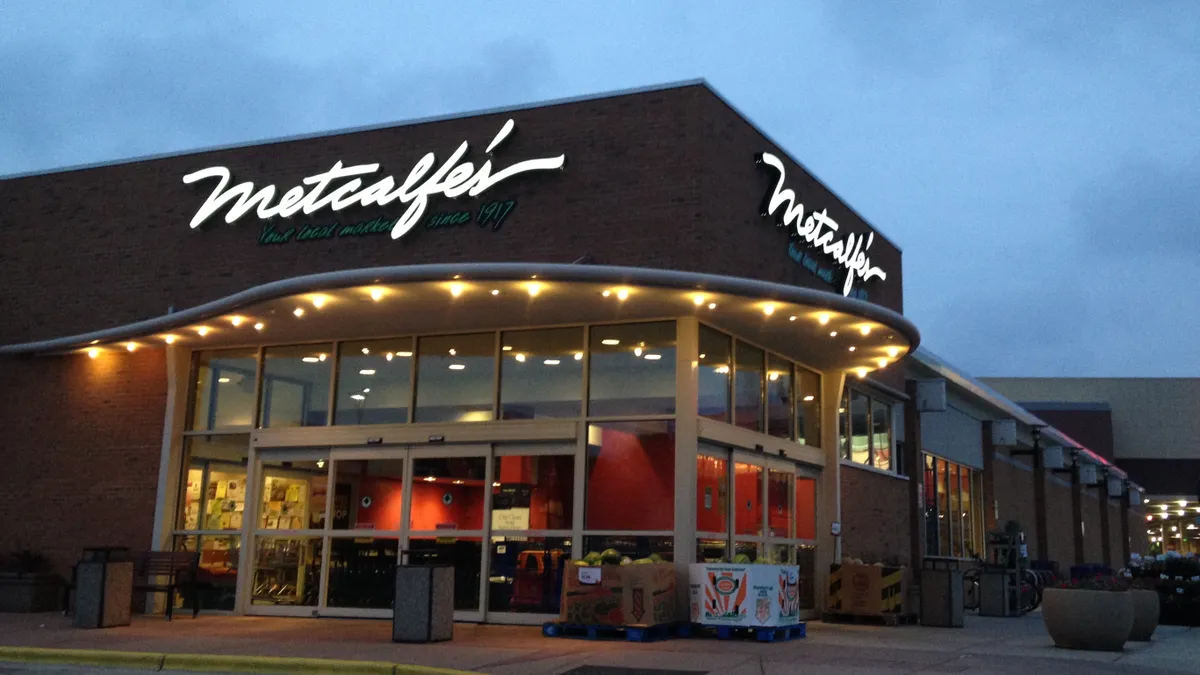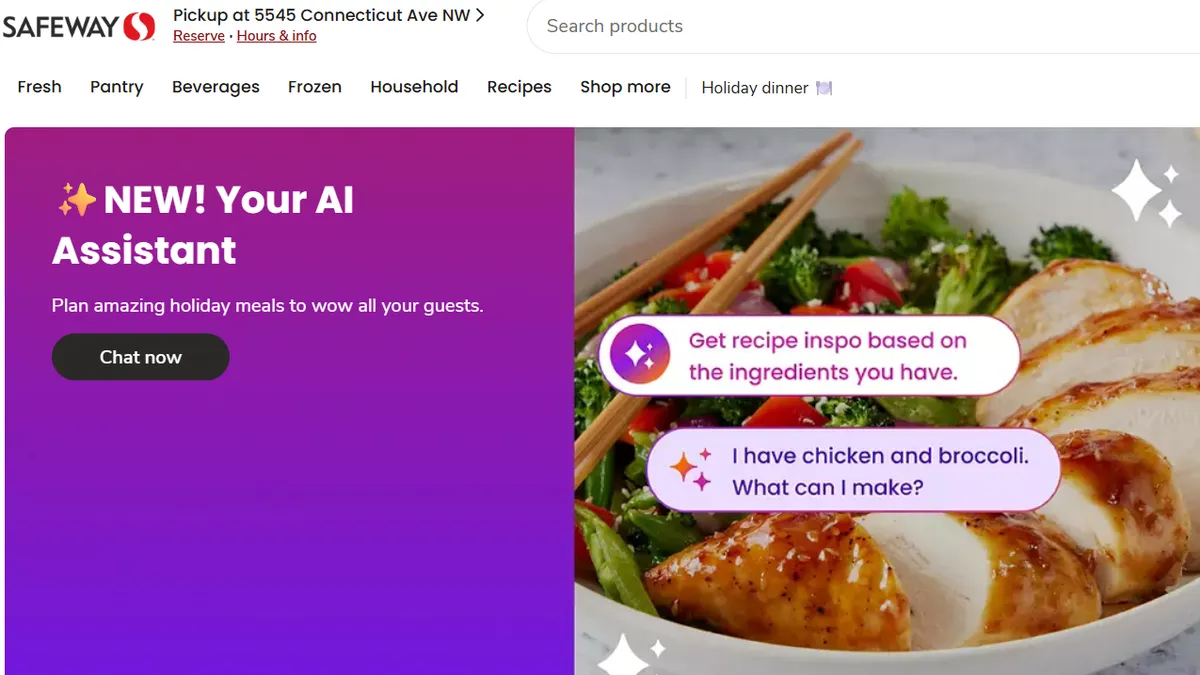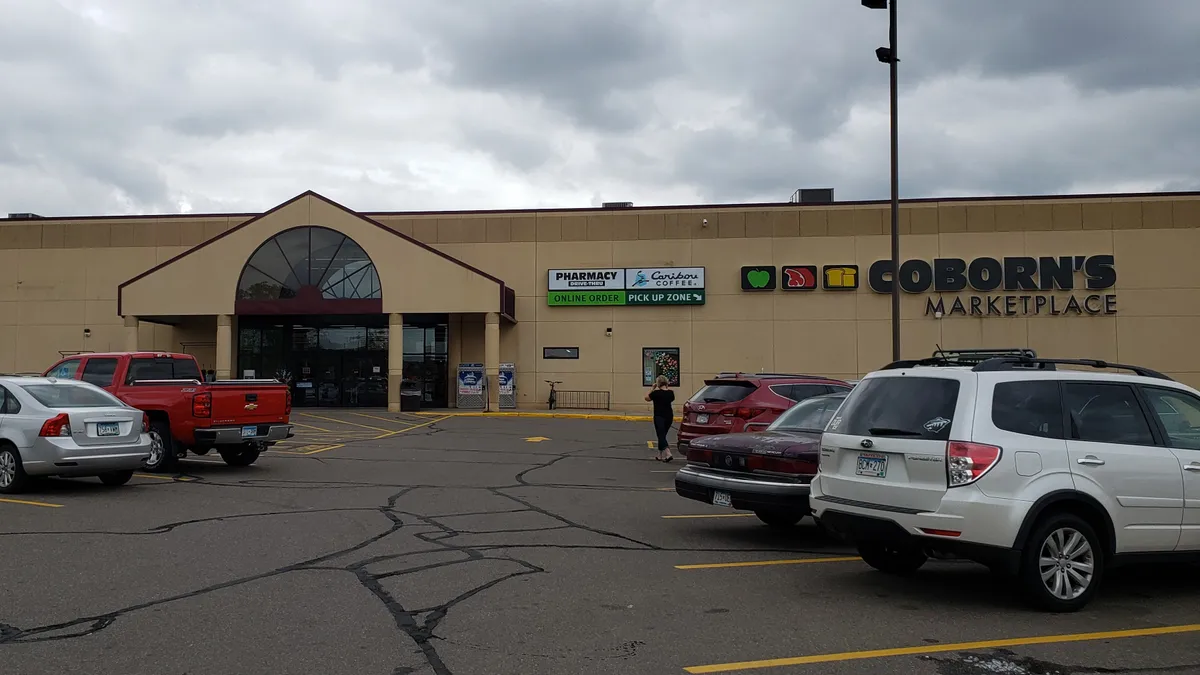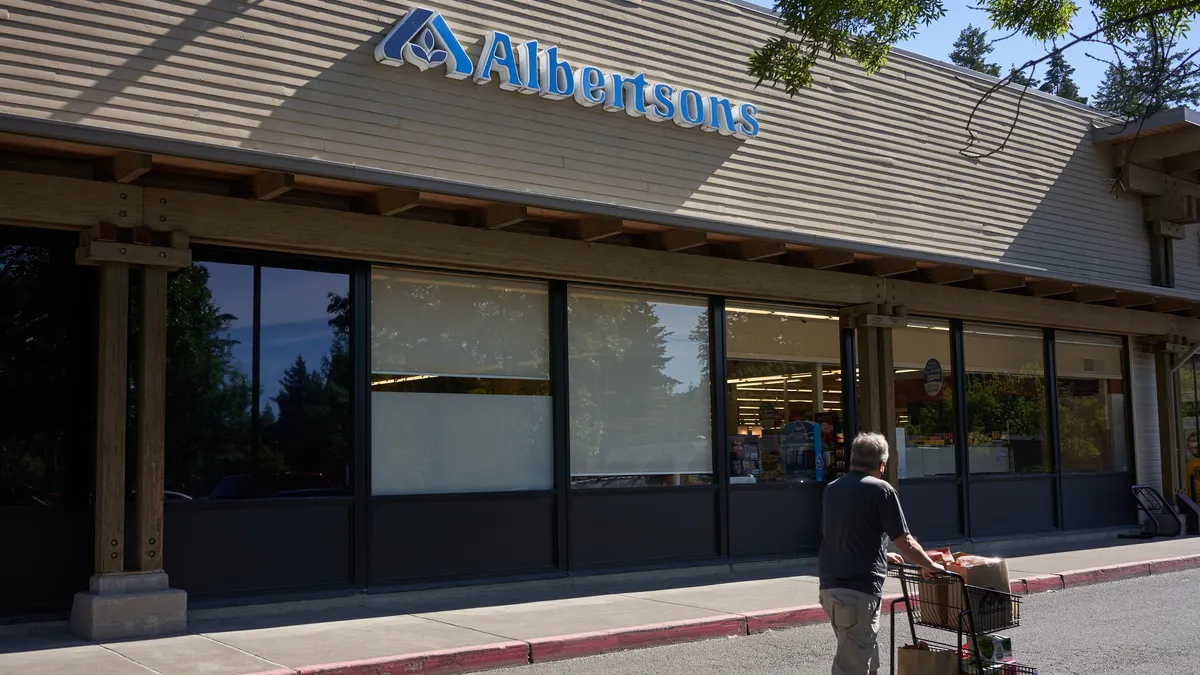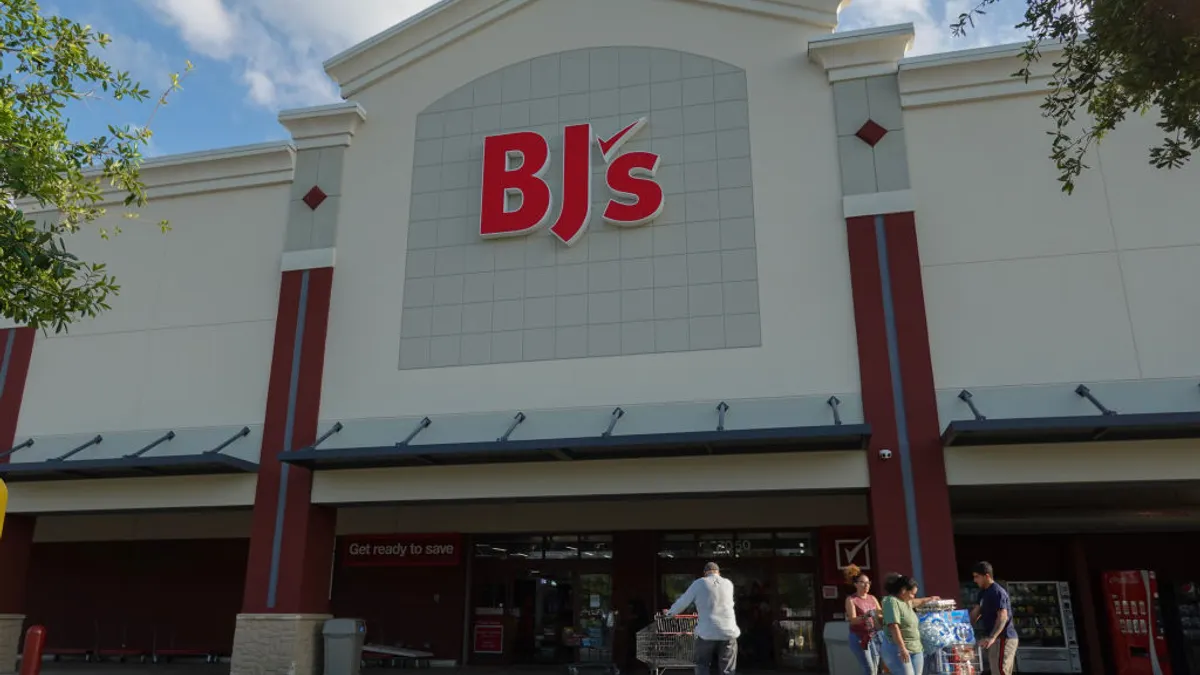Sustainability efforts are gaining more urgency among grocers, with the industry's massive energy consumption for lights and refrigeration, in particular, becoming key areas they're addressing. In the U.S., major grocers like Kroger, Ahold Delhaize and Aldi, are increasingly turning to renewable energy to reduce reliance on fossil fuels.
But Metcalfe's Market is way ahead of them. The fourth-generation, family-owned grocer with three stores in Wisconsin has been 100% green-powered since 2008.
To offset its energy usage at its three stores, Metcalfe's buys renewable energy credits. Renewable energy credits provide proof that every one megawatt-hour of electricity was generated from a renewable energy source, like wind, solar or hydropower, and delivered to the power grid.
Becoming fully green-powered can be a costly and ambitious endeavor for retailers, and Metcalfe's journey also involved working with multiple partners at different times. Co-owner and Director of Operations Kevin Metcalfe said the renewable energy efforts are a part of the grocer's broader sustainability strategy, but that over time he's learned ways to reduce costs and strengthen the appeal of eco-initiatives to customers.
"There's not very many grocers out there that can tote they're 100% green-powered, which, in the sea of choices, this gives us a little bit of a leg up of why Metcalfe’s can be your choice over another competitor," he said.
The journey to 100% green-powered
It all started when a utility company approached the grocer during the midst of the Great Recession in 2008 and convinced Metcalfe's to buy renewable energy credits and get involved in its wind power program. Shortly after that, Metcalfe's found a partner to buy renewable energy credits for its store in Wauwatosa, Wisconsin.
A few years later, the grocer ran into a hurdle when it acquired a Cub Foods store in Madison, Wisconsin: The utility company in that area did not have a commercial program for offsetting that store's electrical usage, so Metcalfe's partnered with a local renewable energy supplier co-op. That partnership kicked off a strong desire for the grocer to buy, where possible, as much renewable energy produced locally as it could.
Fast forward to 2018, Metcalfe's partnered with Juhl Energy, from which the grocer now buys renewable energy credits for hydropower produced within Wisconsin for its three stores.
Over the years, the grocer's flexibility with its partnerships and energy sources has helped it become aware of how much prices for renewable energy credits can vary, Metcalfe said.
"When we were purchasing [renewable energy credits] from the utilities themselves, it came at a premium," Metcalfe said, adding that a lesson learned was that there are vendors who provide the renewable energy credits at lower costs.
Metcalfe said it's important to research costs because it's possible to find a "reasonable amount" of money to budget to offset electrical consumption. Prices can vary based on the different means of electricity production, he said, with hydropower usually being fairly inexpensive, while wind power is more expensive.
"Our neighboring competitor across the street, they don't have that expense, but I think at the end of the day it really comes down to doing what's right," Metcalfe said about the renewable energy credits.
Metcalfe's touts its 100% green-powered status on its website and has received several awards and recognitions for its sustainability efforts, including being included in the U.S. Environmental Protection Agency's "Green Power Leadership Club" from 2008 to 2013 for being 100% green-powered. It has also garnered local and regional media attention for purchasing renewable energy credits.
As grocers ramp up their sustainability efforts, renewable energy has gained more traction. Some retailers rely on onsite solar panels, while others have turned to offsite renewables. Others, like Shoprite in Africa, and Walmart, rely on a mix.
Linking environmentally friendly efforts with efficiency
Beyond its renewable energy efforts, Metcalfe's thinks about how every touch point can become more sustainable, like switching to sustainable plastic bags in its produce and meat departments, composting produce, donating perishable food to local food banks and offering roughly 4,000 local products. The grocer has found that environmentally beneficial choices can often boost operational efficiencies.
For example, its switch to 100% LED lighting at its stores cost, in total, about $417,000 but had a three-year payback that was completed last year. The new lights are saving the grocer almost $97,000 annually in energy costs, along with slashing yearly maintenance costs by $30,000. The grocer also has started using low-energy fan motors for its refrigerated cases, which have improved efficiencies, Metcalfe said.
The grocer also changed all of its dairy sections from open cases to doors, resulting in a roughly 30% energy savings. “That was not an inexpensive thing to do, as well ... that will [have] a little bit longer payback time," Metcalfe said. "But over time, that will come back to us in energy savings and not having to increase the capacity on our refrigeration racks and things like that."
The grocer uses a local technology vendor — Madison, Wisconsin-based Pinpoint Software — to inventory center store items along with packaged meat, dairy and frozen items, to determine when expiration dates are nearing and how much to discount items. The program helps the grocer maximize sales while also curbing food waste, Metcalfe said.
Some efforts, though, create recurring costs, like the renewable energy credits and the grocer's composting program, which relies on a partner organization to help turn expired or non-consumable produce into fertilizer or soil.
"That doesn't come back with an ROI other than we feel that it reaches out to our customer base. I don't know if you can put a number on that," Metcalfe said about those two initiatives.
To help offset some of the costs, Metcalfe's works with Focus on Energy, a program in Wisconsin that helps residents and businesses with energy efficiency and renewable energy costs. For example, Metcalfe's received a nearly $17,000 rebate from Focus on Energy for the LED lighting project, dropping the cost down to roughly $400,000.
Drawing people in with sustainability
Metcalfe said the company's environmental efforts help it stand out to customers, who are willing to pay higher prices to support sustainability efforts, and to job seekers.
Metcalfe's sees renewable energy as a way to further community connection and has focused on buying as much power produced in Wisconsin as possible. That echoes the grocer's local sourcing efforts, which aim to help the environment with lower carbon footprints. Metcalfe's even has food miles badges on local products to let customers know how far away the product came from, Metcalfe said.
As for labor, Metcalfe said the grocer's commitment to local and being 100% green-powered are the top responses when he asks how employees became interested in working for the grocer,
Sometimes Metcalfe has wondered if efforts to go greener will upset shoppers, like when the grocer swapped out its beloved green reusable bags for ones made from rescued plastic found along beaches — or when it stopped selling a top-selling seafood item because it no longer met the company's sustainability criteria.
But customers have often shown appreciation for such moves. After the bag switch, the grocer was bombarded with "thank yous," Metcalfe said.
Not content to rest on its laurels, Metcalfe's has several projects in the works.
The grocer is partnering with Entech and the Hilldale Shopping Center, where one of its stores is located, on a temporary installation of a solar-powered charging station for two electric vehicles, said Darlene Murphy, Metcalfe's marketing director. The companies will provide free charging until the end of the year and then evaluate if the pilot can continue or become permanent.
Metcalfe's told its landlord that it's highly interested in using any additional energy produced by the pilot as part of the renewable energy credits it buys, Metcalfe said.
Metcalfe's is also pursuing opportunities to source its own renewable energy through Juhl, Metcalfe said, adding he hopes solar arrays can one day get added atop the stores.
Continuing its push for operational efficiencies with climate-friendly impacts, Metcalfe's plans to invest in electronic shelf tags to — a step that will keep thousands of paper tags that get changed out weekly from going in the trash and also to free up workers for other tasks.
“The decisions we’re making are the decisions that our customers value," Metcalfe said.


